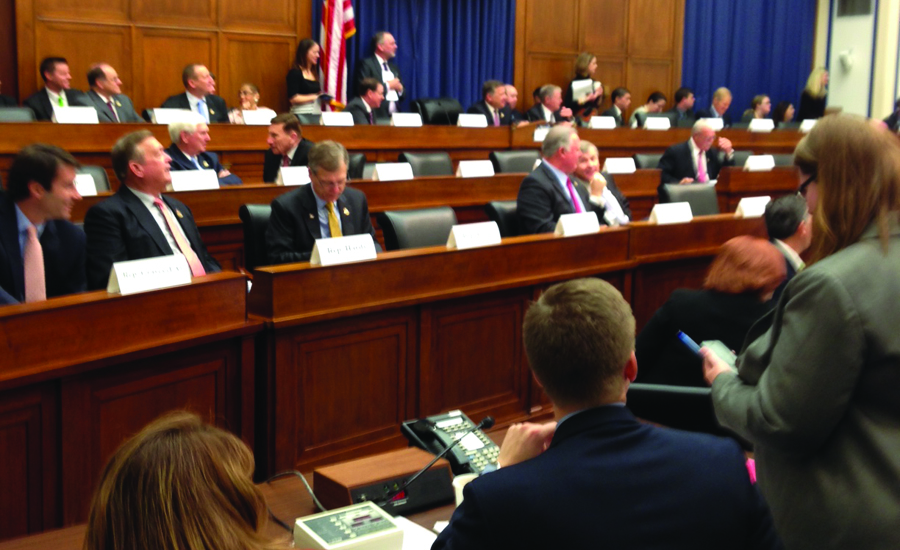Legislation
Transport Bill Talks Continue, as December Deadline Looms

Photo by Tom Ichniowski
House Transportation and Infrastructure Committee Chairman Bill Shuster (R-Pa.) says he’s planning to reach a final agreement with the Senate on a multi-year highway-transit bill by Nov. 30, the day Congress returns from its Thanksgiving break. But he acknowledges that meeting that deadline will be a challenge.
At the Nov. 18 first meeting of the House-Senate conference committee charged with working out differences between the measures that each chamber approved earlier, lawmakers said they were making progress.
But the negotiators realized that they would not get a deal done by Nov. 20, when a short-term highway-transit extension was slated to lapse. Instead, a further stopgap is now in place. That temporary legislation, which President Obama signed on Nov. 20, will expire on Dec. 4. The measure gained final congressional approval one day earlier, when the Senate cleared it on a voice vote.
Shuster, elected the joint committee’s chair, told the 65-member panel, “This is the last extension.”
Senate Environment and Public Works Committee Chairman James Inhofe (R-Okla.), the joint panel’s vice-chair, noted that the House and Senate bills “provide long-term certainty.” He added, “What you cannot do is short-term extensions.”
After the roughly two-hour meeting, Shuster told reporters, “We have a tight timeline here. These [transportation bill negotiations] usually take months—a few to several—and we’ve got to get this thing done.”
He said that House and Senate aides would be drafting the detailed conference agreement during the recess, and added, “So staff, both sides of the aisle, happy Thanksgiving.”
Shuster said, “There’s been great work going on between the House and Senate, finding common ground and moving forward. … I think we’ll meet the deadline.”
One open question is how many years the bill will cover. That, in turn, depends on the total funding.
The $350-billion Senate-passed authorization spanned six years but had enough real funding only for three.
The House-approved version also extends for six years, with authorizations of more than $335 billion. Counting a $40-billion floor amendment, it appears to have funding for five or six years.
Shuster and the transportation committee’s top Democrat, Peter DeFazio (Ore.), say they support the revenue-raising amendment. But another conferee, Rep. Sander Levin (Mich.)—the Ways and Means Committee’s ranking Democrat—said he opposes the provision’s revenue source: emptying the Federal Reserve’s capital surplus account.
Senate Energy and Natural Resources Committee Chair Lisa Murkowski (R-Alaska) told her fellow conferees she objects to another “pay-for”—selling off some of the Strategic Petroleum Reserve’s holdings.
DeFazio said he remains concerned about the bills’ funding levels, noting the high price tag for maintaining current highway and bridge conditions. One way to keep annual funding up would be to keep the final bill’s total within the House and Senate measure’s dollar range, but reduce the term to five or four years, from six.
Shuster says he supports a six-year measure but also noted that the decision on length and funding will involve “negotiations with the leadership on both sides of the Capitol to determine where we come down, if it’s six years or five years.”
DeFazio also said he hopes the final version will include House provisions that any future transportation revenue would go toward programs laid out in the legislation, without needing further congressional action.
Sen. Barbara Boxer (D-Calif.), another key conferee, added, “We are making great progress. … I think we can get there.”





